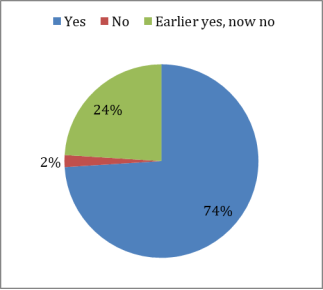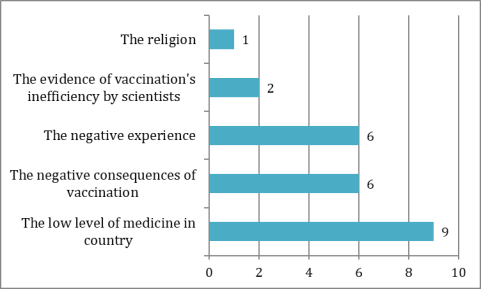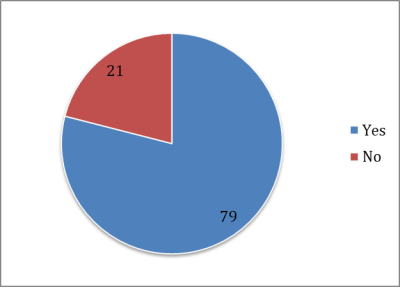Nowadays less and less people do vaccination. It leads to disease outbreaks, deaths around the world and decline of immunity. The purpose of the research is to investigate public opinion in Kazakhstan on a necessity of the vaccination. The aim is to reveal people’s true attitude about the issue of the vaccination and the reasons whether they get the vaccination or not. Also, the situation in Kazakhstan will be compared with the issue in developed countries such as the USA and Japan.
Keywords: vaccination, disease, infection, outbreak, immunisation, health.
The doctors have been accepted that vaccination always was the most controversial issue in a medicine after the euthanasia. There are a lot of books and films such as ‘Vaccinated: One Man's Quest to Defeat the World's Deadliest Diseases’ (Paul A. Offit, 2012), ‘The Panic Virus:: A True Story of Medicine, Science, and Fear’ (Seth Mnookin, 2011), or ‘Vaccination: The Hidden Truth’ (VieraScheibner, 1998). The objective of all these creations is to show whether people should get the vaccination or not.
If we talk about our country, we should mention that Kazakhstan is the country of the post-Soviet area. In the Soviet Union, the massive campaigns of vaccination were conducted, as it was mentioned in the book ‘THE SOCIAL CONSEQUENCES OF SOVIET IMMUNIZATION POLICIES’ (STEVEN L. HOCH, University of Iowa, 1997). The vaccination was mandatory and people could not refer to it. Nowadays the attitude to the vaccination has changed not only for this reason. The literature on this topic has affected the attitude of Kazakhstan’s citizens. A lot of mothers have debates on whether should their children get a vaccination or not. It seems interesting to me and this is one of the reasons why I decided to choose this topic in order to find out the real reasons for the concern.
Comparative analysis of vaccination situation in Kazakhstan vs the USA vs Japan
The most contradictory situations with the vaccinations were formed in countries such as the USA, Japan and Kazakhstan. I am going to analyze them in details.
According to Report of Nurses (2015) [1], despite the high immunization rates for required vaccines to apply for school, recommended childhood vaccination stays lower the norm indicated in Healthy People 2020 recommended goal (established in 2010). These objectives provide science-based, 10-year national targets for the strengthening the health of all Americans. These goals measure the impact of the vaccination, monitor healthy index and eliminate the most common illnesses. Besides, millions of unvaccinated children live in the US that leads to going up outbreaks of measles and pertussis. California Department of Public Health (2014) [2] outlines that in 2010, there were over than 9000 cases of pertussis. Consequently, the VPD are back and children are dying because of them. Vaccines have turned into a victim of their own success. The fear about vaccines are caused by anti-vaccination movements, which spread out with Internet and mass media. National Report about vaccination (2015) in the US examines that 10 % of parents in the US don’t allow their children to get a vaccination. Access to precise and recordable information about the vaccine is a problem of primary importance.
As Daisuke Matsui et al. wrote in ‘Factors associated with influenza vaccination status of residents of a rural community in Japan’ (2010) [3], the seasonal influenza vaccination in Japan is one of the mandatory since 1976. The recent report has indicated that there was a sharp decrease from approximately 80 % in the late 1970 to 18 % in 1992 caused by public concerns about possible negative effects. As a result, influenza vaccination covers fewer and fewer people. Nowadays it’s currently estimated less than 10 per 1000 people. This is one of the worst rates in developed countries.
Sharon J B Hanley et al state in ‘HPV vaccination crisis in Japan’ (2015) [4] that the situation with HPV is worse. This vaccine was included in the national immunisation programme. Although the Japanese Ministry of Health, Labour and Welfare stopped HPV vaccine after unconfirmed reports of events in mass media. Vaccine Adverse Reactions Review Committee stated there was no link between vaccination and adverse events after vaccination but they still don’t allow vaccination to start. As the Ministry of Healthcare of the Republic of Kazakhstan (2017) [5] showed the coverage of the vaccination makes up more than 90 %. However, more and more people stopped vaccinating because of the religious beliefs. The refusal from the vaccination led to serious outbreaks. For example, this outbreak happened in 1995 when 1105 man had diphtheria. The consequence was the death of 66 men. That’s why mass immunization programme was conducted in 1995–1996. As a result, 10 million people were vaccinated.
Over the 20 years, the measles outbreak was observed in 2005 in Kazakhstan. It was reduced by mass immunization programme held in 2005.Generally, the vaccination in Kazakhstan has the positive effects. Over the past 20 years, the incidence of rubella has declined by more than 4,000 times (from 8,369 cases in 1995 to 2 cases in 2015), whooping cough — by 6.8 times (from 504 cases in 1995 to 74 cases in 2015) epidemic mumps — 181.6 times (from 4,541 cases in 1995 to 25 cases in 2015). Compared with the pre-vaccination period (vaccination started in 1998), the incidence of viral hepatitis B among children decreased by 482 times (from 965 cases in 1995 to 2 cases in 2015). A consistently low incidence of tetanus, viral hepatitis A is maintained. There are no cases of diphtheria or poliomyelitis.
To sum up, the reasons of the non-vaccination are the link between the vaccination and the autism, religion and stop in child development. However, the reasons for vaccination are reducing deaths, promoting economic growth and peace. Obviously, the most contradictory situation was formed in the US and Japan. Of course, the number of non-vaccinated constitute much less than half, but there are some opponents with their anti-vaccination beliefs. The situation in Kazakhstan is better and there are not so many anti-vaccination movements. Vaccination causes fewer disputes in Kazakhstan than in developed countries such as the US and Japan.
Methodology
Several methods of research were used in this study. Firstly, I did some secondary research on the Internet to get more knowledge about the vaccination. I chose Internet instead of libraries because there were not a lot of books, magazines, journals on the theme. The information from credible sources was used to conduct my research. I looked at the articles about the vaccination to consider the topic from different views and sites of Labour and Welfare of Japan, California Department of Public Healthand, The Ministry of The Healthcare in Kazakhstan.
Secondly, I am going to use quantitative methods for primary research because it clearly shows the people's point of view. To find out the public opinion I intend to apply tools such as a questionnaire and the analysis of documents from a medical unit.
The audience of the questionnaire will be people of all age categories except children (less than 16 years old) because older-aged people are aware of vaccination and own decision to do the vaccination or not. The students of NIS and their parents will be respondents of the survey. The survey will be anonymous to save the confidentiality will be saved.
In the end, the statistics from the school health centre will be used to have a more detailed presentation about the vaccination.
Results
Out of 100 respondents only 74 get the vaccination. 24 % had been vaccinated earlier, however, now they don't get vaccination. Only 2 polles have never got the vaccination.

Fig. 1. The answers to question «Do you get the vaccination?»
Those who don't get the vaccination answered the question «What is the reason of your decision?" The answers were the low level of medicine in country (9), the negative consequences of vaccination (6), the negative experience (6), the evidence of vaccination's inefficiency by scientists (2), the religion (1).

Fig. 2. The answers to question «What is the reason of your decision?»
The next question («Do you agree with the statement that vaccination plays an enormous role in preventing of diseases?") was mandatory for all respondents. 79 pollees think that it really helps in preventing illnesses, whereas 21 disagree with this opinion.

Fig. 3. The answers to question «Do you agree with the statement that vaccination plays an enormous role in preventing of diseases?»
The statistics from school's health center in the period from 2016 to 2017 showed that out of 262 pupils 224 got exhausted diphtheria tetanus vaccine. 27 students refused from the vaccination. 7 didn't get because of medical alerts. 5 got out of school.
Conclusion
The vaccination is one of the most powerful tools in preventing diseases in XXI century. However, nowadays people refuse from getting it because of many reasons. Those reasons are the negative experience, faith to scientists, the medical alerts and religion.
The most interesting is that in the developed countries like the US, Japan, anti-vaccination movements are stronger. It can be explained by different mindset from this people live in the developing countries such as Kazakhstan. There is an opinion that in the future situation will be worse. Even although the proponents of the vaccinations are more than opponents.
References:
- National Association of School Nurses. (2015). Immunizations (Position Statement). Silver Spring, MD: Author.
- California Department of Public Health (2014)
- Daisuke Matsui et al (2011). Factors associated with influenza vaccination status of residents of a rural community in Japan
- Sharon J B Hanley (2015). HPV vaccination crisis in Japan
- The ministry of Healthcare of Republic of Kazakhstan (2017). Аchievements in immunization

